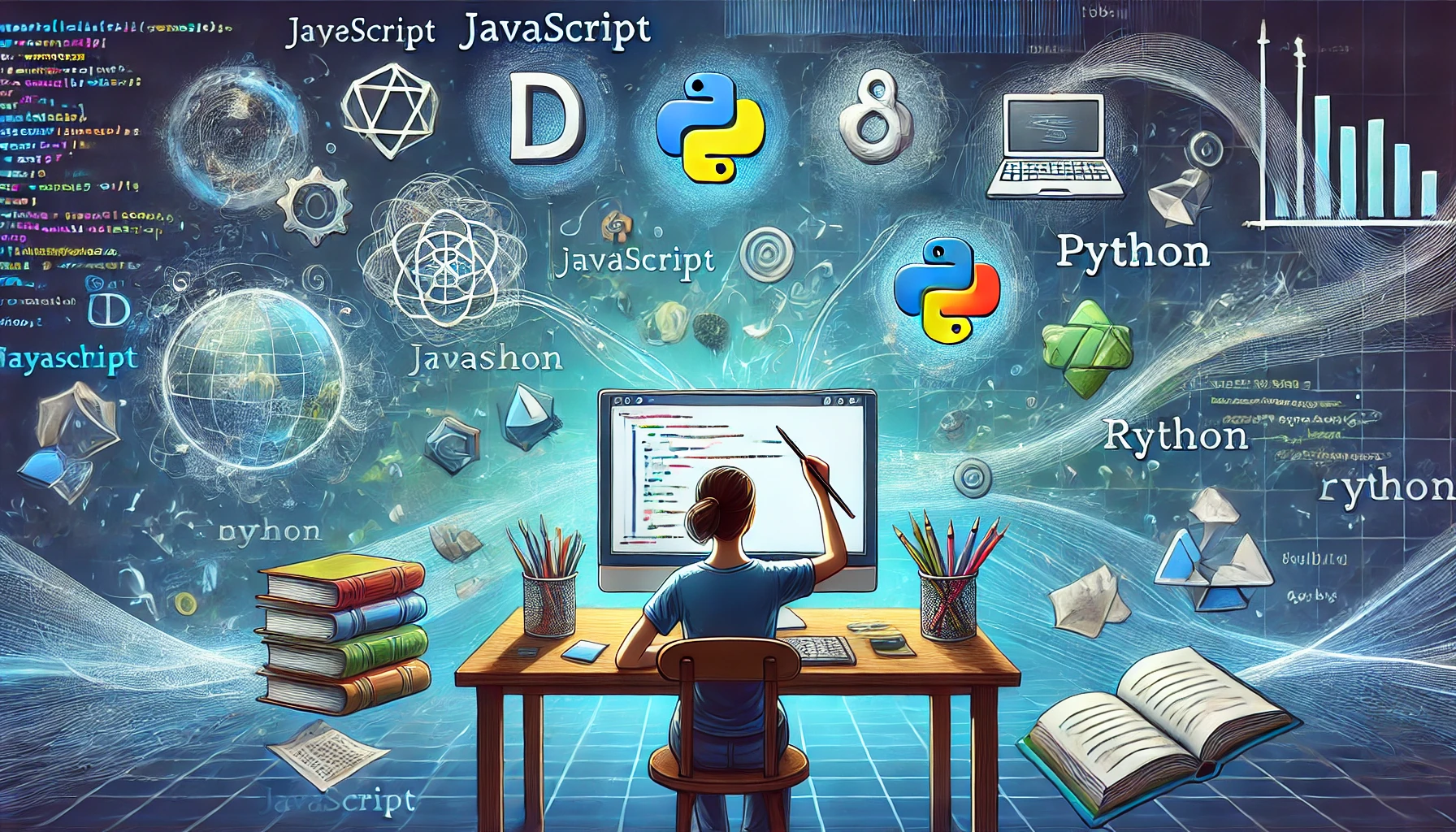How to Learn Scripting Languages: A Beginner’s Guide to Mastering Code

WebCoder

Curious about scripting languages? This guide breaks down the essentials for beginners, from understanding the basics of syntax to honing your logical thinking skills. Get started on your coding journey today!
How to Learn Scripting Languages: A Beginner’s Guide
Learning a scripting language can be a game-changer, whether you're aiming to build dynamic websites, automate tasks, or dive deeper into programming. This guide will walk you through the essentials you need to know, from understanding the basic concept of scripting languages to strategies for mastering them. Let's start from the basics and take it step-by-step.
What Is a Scripting Language?
Before diving into scripting languages, it’s helpful to understand what software is in the first place. In simple terms, software is a collection of instructions (or code) written to perform specific tasks. These instructions follow pre-set conditions, like a recipe that guides the software on what to do and when.
Now, a scripting language is a type of programming language used to automate tasks within software or to add interactivity to websites. Scripts are generally written as small, manageable functions or objects that are executed when called upon. Unlike compiled languages (like C++ or Java), scripting languages usually don’t need to be compiled and can be run directly by an interpreter.
A common example of a scripting language is JavaScript. Let's take a look at a basic JavaScript function:
function alertBox(){
alert("Hello, World!");
}
alertBox();In this code snippet:
alertBox()is a function that's already defined and ready to use.- When
alertBox()is called, it triggers an alert pop-up that displays the message "Hello, World!"
This small example highlights a key feature of scripting languages: their ability to execute pre-written commands on demand, making them ideal for adding interactive features or automating repetitive tasks.
Why Are Scripting Languages Important?
Scripting languages are the backbone of modern web development and automation. They allow developers to create dynamic, responsive experiences online and to automate workflows in a simple, efficient way. Common scripting languages include:
- JavaScript: Primarily used for adding interactive elements to web pages.
- Python: Known for its versatility and used in web development, automation, data analysis, and more.
- Ruby: Often used for web applications, especially with the Ruby on Rails framework.
- PHP: Commonly used for server-side web development.
Steps to Learn a Scripting Language
Now, let’s get to the core of this guide: how to learn a scripting language effectively. Here’s a step-by-step approach to get you started.
1. Understand Basic Concepts
Before you dive into any scripting language, make sure you understand some foundational programming concepts, such as:
- Variables: Containers that hold data values.
- Functions: Blocks of code designed to perform specific tasks.
- Loops: Code structures that repeat actions.
- Conditionals: Statements that execute code only if certain conditions are met.
Grasping these concepts will give you a solid foundation for any scripting language.
2. Start with Syntax and Practice
Each scripting language has its own syntax—the set of rules that defines the structure of valid code. Start with simple syntax structures, like declaring variables or writing functions, and practice them consistently.
For instance, in JavaScript, a basic function looks like this:
function sayHello() {
console.log("Hello, World!");
}
sayHello();Start by writing small snippets of code like this, running them to see how they work, and gradually increase the complexity.
3. Work on Logical Thinking Skills
Coding is as much about logical thinking as it is about syntax. Logical thinking involves breaking down complex tasks into smaller, manageable steps and finding solutions systematically. Here are a few tips to enhance your logical thinking:
- Practice problem-solving: Sites like LeetCode and HackerRank offer coding challenges that improve your logical thinking.
- Build small projects: Creating simple projects, like a calculator or to-do list, will challenge you to think logically and apply what you've learned.
- Learn debugging: Knowing how to spot and fix errors is an essential part of logical thinking.
4. Embrace "Out-of-the-Box" Thinking
To become proficient in scripting, you’ll need to think creatively and come up with innovative solutions to coding problems. This skill, often called out-of-the-box thinking, is crucial in programming because it allows you to approach problems from different angles.
Imagine you’re tasked with creating a dynamic form that changes based on user input. Thinking out of the box might mean figuring out how to use JavaScript to make the form interactive rather than relying solely on pre-set HTML.
5. Learn by Doing
The best way to learn a scripting language is by building things. Start with small projects and scale up as you gain confidence. Here are a few project ideas for beginners:
- Create a calculator: A simple project that helps you understand functions and conditionals.
- Make a to-do list: Practice using arrays, loops, and DOM manipulation (if you’re using JavaScript).
- Build a basic webpage: Use HTML, CSS, and JavaScript to create an interactive page.
6. Familiarize Yourself with Documentation and Community Resources
Every scripting language has official documentation, like MDN Web Docs for JavaScript. Documentation is invaluable as it provides syntax references, examples, and explanations for built-in functions.
Additionally, joining a community like Stack Overflow can provide support and answer questions when you’re stuck.
The Importance of English Proficiency
While it may sound surprising, a good command of English can actually help in learning programming. Most documentation, resources, and error messages are in English. Additionally, English proficiency can make it easier to understand code syntax, as many programming terms are derived from English words.
FAQs on Learning Scripting Languages
Q: What’s the easiest scripting language for beginners? A: JavaScript and Python are often recommended for beginners due to their readable syntax and large communities.
Q: How long does it take to learn a scripting language? A: This depends on your dedication. With consistent practice, you can grasp the basics in a few weeks, but becoming proficient takes several months to a year.
Q: Can I learn multiple scripting languages at once? A: It’s better to start with one language. Once you're comfortable, picking up additional languages will be easier as they share similar concepts.
Wrapping Up
Learning a scripting language is an empowering journey that can open up a world of possibilities, from creating interactive websites to automating everyday tasks. Start with the basics, practice consistently, and don’t shy away from asking questions. With patience and persistence, you'll become proficient in no time.
Remember, learning to code is like learning any other language—it takes time and regular practice. So, dive in, stay curious, and enjoy the process!

Vijayakumar Mayilsamy
WebCoder
WebCoder focused on creating seamless web experiences. Expert in WordPress development and bridging the gap between design and functionality.
